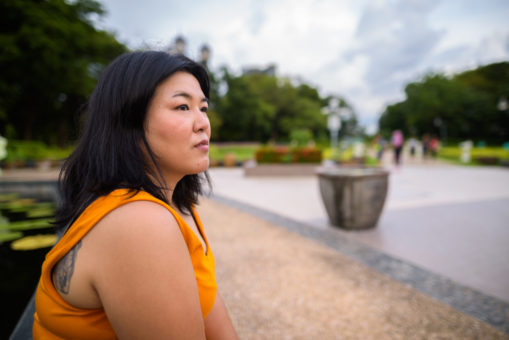Content updated on 04/09/24
The Need for Inclusivity: Minority Mental Health
Whether persons of color or persons in the LGBTQ community, many minorities feel as though they cannot access treatment because their provider will not be able to relate to them. Additionally, minorities are less likely to receive diagnosis and treatment for mental health conditions, have less access to and availability of mental health services, and often receive poorer quality mental health care. Take a look at these facts and statistics about minority mental health:
- Twenty-five percent of African Americans seek treatment for mental health issues, compared to 40% of white individuals. The reasons for this discrepancy include misdiagnoses by doctors, socioeconomic factors and a lack of African American mental health professionals.(1)
- 2.3 percent of African American and Hispanic young individuals visited a mental health specialist in a given year, compared with 5.7% of white children and young adults.
- According to the Youth Risk Behavior Survey, 16% of students at Bureau of Indian Affairs schools in 2001 reported having attempted suicide in the preceding 12 months.
- 8.6 percent of Asian American adults sought mental health treatment in 2010 compared to 18% of the general population nationwide who reached out for services in the same year.(2)
- Suicide is the 2nd leading cause of death for Native American youth in the 10 to 35-age range.(3)
- Older Asian American women have the highest suicide rate of all women over age 65 in the United States.(4)
- In 2019, suicide attempts for Hispanic girls, grades 9-12, were 30% higher than for White girls in the same age group.(5)
- Around 65% of African American youth have said to experienced a traumatic event in their life when compared to 30% of those in other ethnic groups.(6)
Becoming a Minority Mental Health Advocate
As a mental health provider, it is possible to educate yourself on your patient population by going to workshops in the community, learning about specific lingo and wording that individuals in these communities use and getting involved with activist groups to be better informed about the difficulties these minorities are facing. If you’re ready to make a difference in someone’s life, consider becoming a minority mental health advocate:
- Bring minorities onto your staff to make your practice more diverse.
- Check your own unconscious biases. Harvard has an excellent resource at Project Implicit that can help you identify your biases, so you can begin to work on eliminating or mitigating them.
- Actively engage with your community and with diverse communities. Make an effort to reach out beyond your comfort zone to engage with populations who may not typically come through your door.
- Enroll in community workshops and research organizations such as PFLAG, LGBTQ community centers, and youth groups.
- Recognize that race and gender does have a huge role in mental health because these communities are often stigmatized.
- Educate your staff to foster inclusive behaviors.
- Address harassment and intolerance of peers immediately and directly.
Every year, the month of July marks Minority Mental Health Month and strives to raise awareness about mental illness and how minorities are affected at even greater lengths.
Effective, Evidence-Based Mental Healthcare for All People
One of our greatest missions here at Discovery Mood & Anxiety Program is to make mental health care accessible, affordable and available to all people. Our diverse staff members work daily to create open, accepting and affirming environments where all people feel welcome to create positive changes in their lives. Learn more about our treatment services and reach out to us if you have any questions about our centers.
Related Articles on Discovery Mood & Anxiety Program
- Native Americans & Mental Health Concerns
- African Americans & Mental Health Concerns
- Asian Americans & Mental Health Concerns
